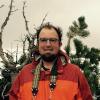Science, Capitalism, and Knowledge Commodities
Please set your timezone at https://www.chstm.org/user
Consortium Respectful Behavior Policy
Participants at Consortium activities will treat each other with respect and consideration to create a collegial, inclusive, and professional environment that is free from any form of discrimination, harassment, or retaliation.
Participants will avoid any inappropriate actions or statements based on individual characteristics such as age, race, religion, ethnicity, sexual orientation, gender identity, gender expression, marital status, nationality, political affiliation, ability status, educational background, or any other characteristic protected by law. Disruptive or harassing behavior of any kind will not be tolerated. Harassment includes but is not limited to inappropriate or intimidating behavior and language, unwelcome jokes or comments, unwanted touching or attention, offensive images, photography without permission, and stalking.
Participants may send reports or concerns about violations of this policy to conduct@chstm.org.
Upcoming Meetings
There are no currently scheduled upcoming events.
Past Meetings
-
January 24, 2023
Lukas Rieppel, who is David and Michelle Ebersman Assistant Professor of History - Brown University, will lead the group in a discussion that looks at the development of the field since the publication, back in 2018, of Osiris Volume 33, "Science and Capitalism: Entangled Histories."
To look at the state of things in the present, Lukas has shared this piece that he's working on, "Earth Science and Extractive Capitalism in the Age of Empire." This will be our primary reading for the discussion. Those who'd like to reacquaint themselves with the introductory essay from Osiris 33 certainly may do so as well. You can find both the recent piece as well as the introductory essay in Osiris 33 attached in a zip file.
For more on Lukas's work, see: https://sites.google.com/view/lukasrieppel/?pli=1
-
November 22, 2022
Anthony Greco (Doctoral Candidate - University of California, Santa Barbara) will lead our November discussion. His talk is titled "Engineering on Trial: The 1920 Nile Projects Controversy and the Flow and Friction of Scientific Data."
Abstract: A question of circulation has long structured approaches to the history of science across diverse world regions. Scientific knowledge production facilitated both exchange and opposition between cultural barriers. In 1920, the Nile Valley was the scene of a debate between Egyptian and British engineers over competing systems of hydraulic measurement. The controversy offers a fresh perspective on flows and frictions of scientific knowledge. Experts on all sides proffered evidence from a variety of sources, from current meters, gauge-flow charts, and sluice gate readings to interviews with peasants and even medieval Arabic chronicles. This paper explores the controversy though technical reports, political speeches, journalistic articles, public lectures, correspondence, and exhibitions in Arabic and English. By putting hydraulic engineering on trial, the controversy offers a view of “science in action” revealing how the flow of hydraulic measurements from the river bank to the Public Works Ministry encountered the friction labor, language, and the limitations of British imperialism.You can learn more about Anthony's research here: https://www.history.ucsb.edu/graduate-student/anthonygreco/
-
September 27, 2022
Christopher Jones (Arizona State Unversity) will lead the group in a discussion of the introduction to his upcoming work. The chapter, titled "The Invention of Infinite Growth," considers how the concept of infinite economic growth has shaped political thinking in the US and how it has exacerbated some of the most daunting ecological challenges associated with the anthropocene. We look forward to a lively conversation on this timely matter!
For more of Christopher's research, you can check out his webpage: http://www.christopherfjones.com/
or his page at ASU's Global Institute of Sustainablity and Innovation: https://sustainability-innovation.asu.edu/person/christopher-jones/
Please direct any questions about the meeting to:
Joshua McGuffie: jmcguffi@ucla.edu
Eun-Joo Ahn: eahn@ucsb.edu
Lee Vinsel: lee.vinsel@gmail.com
-
May 24, 2022
24 May 2022
2pm to 3:30pm Eastern
Robin Scheffler, MIT, will present an exciting essay titled "Biotechnology and the Urban Geography of Knowledge Production." This piece grows out of research for Robin's forthcoming book, Genetown: The Greater Boston Area and the Rise of American Biotechnology.
You can check out Robin's work here: http://robinscheffler.mit.edu/
-
April 26, 2022
Hello all!
Due to circumstances outside of their control, our April presenter will not be able to share a paper. Since we still have the meeting time alotted, we conveners are hoping to have a group discussion with everyone who's interested in the future direction of the reading group.
We might talk future directions, interesting topics, and what's next. Are there any speakers who it would be good to invite to the group? Any focused historiographi conversations that could be fruitful? Any timely topics?
We'll meet over zoom at 2pm EDT on Tuesday 26 April.
All the best,
Eun-Joo Ahn, Josh McGuffie, and Lee Vinsel
-
March 22, 2022
Cyrus Mody, Maastricht University, will share his paper "Oil Spillovers and the Ambiguities of Scarcity in the Long 1970s"on Tuesday 22 March at 2pm Eastern. Here is the abstract:
"The 1970s saw an intense global debate about resource scarcity and related issues: consumption, conservation, pollution, overpopulation. This debate was propelled by events such as publication of the Limits to Growth report and the UN Stockholm Conference of 1972, and especially the OAPEC oil embargo of 1973. From 1973 to 1979, the experience of car-free Sundays and long lines for petrol (temporarily) persuaded global publics that oil was a finite and scarce resource.
There are many conspiracy theories - some of them plausible - about the oil industry's role in the embargo and in the scarcity debate more generally. What is certain is that people associated with the oil industry fostered that debate - from both the "cornucopian" and "neo-Malthusian" camps. Oil actors and oil firms were also surprisingly active in alternative energy in this period: most of the major companies and many of the minors had in-house programs and/or partnerships in nuclear energy (both fission and fusion), solar, geothermal, the hydrogen economy (batteries, fuel cells, and electric cars), biomass, etc. The windfall profits and political pressures arising from the oil crises of '73 and '79 also led oil firms to invest massively in non-oil technologies: biotech, artificial intelligence, semiconductor manufacturing, and even advanced golf club technology! Yet when the price of oil declined in the 1970s oil companies retreated from those investments and slowly turned to climate denialism as an alternative strategy.
This talk surveys the oil industry's complex role in all kinds of technological activities (or "oil spillovers") throughout the 20th century, and the intensification of those spillovers in connection with the scarcity debate of the 1970s. I will further attempt to draw out some insights relevant to sustainability transition and innovation studies and to current debates about the oil industry's culpability for climate change."
You can find Mody's webpage here: https://www.maastrichtuniversity.nl/c.mody
...and more on his oil research here: http://www.maastrichtsts.nl/managing-scarcity-and-sustainability
-
February 22, 2022
Taylor Moore, Academy Scholar, The Harvard Academy for International and Area Studies, will share a chapter that "reconstructs the rich constellation of occult workers, occult objects, and their customers in late 19th and early 20th century Egypt. It uses Arabic sources and archival materials from ethnographic amulet collections to highlight the political and spiritual economy of women magico-medical practitioners at the center of this robust economy."
You can find her website at: https://wcfia.harvard.edu/taylor-m-moore
22 Febuary 2022, 2pm - 3:30pm EST
-
January 25, 2022
Erika Milam, Charles C. and Emily R. Gillispie Professor in the History of Science at Princeton University, will share a work in progress titled "Making Place in the Field: Science, Capitalism, and Knowledge" that looks at long-term research projects in animal behavior during the 1970s, '80s, and '90s. You can find the abstract below and the paper attached.
Abstract: By conceptualizing place-making as a dynamic process, this essay explores the history of two field sites that house long-term research projects in animal behavior: the Amboseli Baboon Project, cofounded by Jeanne Altmann in 1971, and Kay Holekamp’s Mara Hyena Project, which began in 1988. It highlights scientific place-making as crucial to the production of knowledge within behavioral ecology and invests our historical understanding of field sites with an appreciation for the intellectual processes that have transformed land into places for the generation of scientific data.
-
November 23, 2021
The Science, Capitalism, and Knowledge Commodities reading group will meet next Tuesday, 23 November from 2 to 3:30 PM Eastern.
Gustave Lester, PhD. Candidate, Harvard University and Beckman Dissertation Fellow at the Science History Institute will present a draft of his dissertation chapter: "Mineral Resources and Economic Nationalism in the Early Republic, 1780-1815."
The Zoom link will be available on the reading group webpage. We look forward to an exciting and productive discussion!
-
October 26, 2021
Evan Hepler-Smith, Duke University, "Handbook chemistry" from his ms. Compound Words: Chemical Information and the Molecular World, on the 19th century emergence of the chemical handbook and the chemical abstract journal.
Group Conveners
-

Eun-Joo Ahn
Eun-Joo Ahn is a postdoctoral associate at the Yale Center for the Study of Race, Indigeneity, and Transnational Migration. She is interested in mid-twentieth century transnational science from the sociocultural perspective of Korean American scientists. Her dissertation examined the founding and development of Mount Wilson Observatory, an astronomical observatory located near Pasadena, in relation to Southern California's sociocultural and natural environment during the early twentieth century. She holds a Ph.D. in History from the University of California Santa Barbara and a Ph.D. in Astronomy and Astrophysics from the University of Chicago.
-

Joshua McGuffie
Joshua McGuffie earned his PhD from UCLA in 2023. He is an adjunct professor at Occidental College in the Urban and Environmental Policy Department and at Moorpark College in the History Department. His research focuses on environmental health and state projects, particularly looking at the work of the Manhattan Project's Medical Section during World War II and the high modernist Cold War. Joshua also serves as a parish pastor in the Evangelical Lutheran Church in America, currently at the Church of Hope in Santa Clarita, CA.
-

Lee Vinsel
Lee Vinsel studies human life with technology, with particular focus on the relationship between government, business, and technological change. His first book, Moving Violations: Automobiles, Experts, and Regulations in the United States, was published by Johns Hopkins University Press in July 2019. Since 2015, with his collaborator Andy Russell, Vinsel has organized and led The Maintainers, a global interdisciplinary research network that examines maintenance, repair, and mundane work with technology. Vinsel’s work has been published in several major history journals and has appeared in or been covered by Aeon, the New York Times, The Atlantic, Guardian, Le Monde, and other popular outlets.
-
Claire Votava